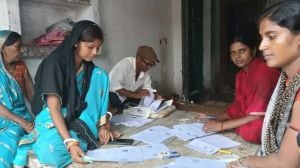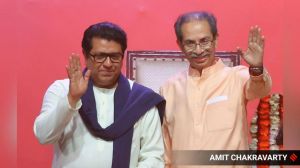The bully pulpit
In its short tenure so far, the United Progressive Alliance ministry must have become well accustomed to being rocked by Left rhetoric. Now ...

In its short tenure so far, the United Progressive Alliance ministry must have become well accustomed to being rocked by Left rhetoric. Now it must learn to live with Left ultimatums. CPIM Politburo member Sitaram Yechury has given the UPA government two weeks to fall in line with the Common Minimum Programme 8212; 8220;or else8221;. For now Yechury8217;s ire is concentrated on two points: the proposal in the Union budget to hike FDI in insurance and to divest 5 per cent of the government8217;s stake in NTPC. There is nothing remotely surprising in the communist parties8217; strident opposition to these plans. The inflexibility of their views on privatisation and FDI are too well known. However, the manner in which their spokespersons have been going about dictating strategy to the UPA government makes for both irresponsible power-sharing and ugly politics.
In seeking to stridently and vociferously set the agenda for the Central government, the communists have failed to heed Mandate 2004. The people of India have in effect chosen between a coalition headed by the BJP and another headed by the Congress. Coalesced around them are a rainbow spectrum of smaller political parties, driven by varied ideologies and agendas. Crafting consensus on specific legislations is thus a complex process. And, as the BJP did during its years in power, the Congress can rightfully attempt to garner support for reformist proposals from among the opposition parties 8212; to make up for lack of support from its own alliance partners. That is what Finance Minister P. Chidambaram would presumably be keen to do to amend the Insurance Regulatory and Development Authority Act to raise FDI caps. That any such move may be doomed, with the BJP giving early signals that it will not cooperate, is a different story. But by trying to bully the government into rolling back its plans, senior communist leaders like Yechury deny the government both the parliamentary mechanism of cross-party consensus and the flexibility any ministry must have to respond to the challenges of the day. Such ultimatums are thus not just un-reformist, they are also un-parliamentary.
There is, of course, the argument that the Left is speaking to its constituency primarily in West Bengal and Kerala. Communist MPs are hunting in such a large pack in the 14th Lok Sabha because of a spectacular triumph against Congress opponents. Assembly elections are too far away, and they would be keen to periodically work up some dissent against policies of a Congress-led Central government. But when the rhetoric in New Delhi is so much at odds with the pragmatism in states like West Bengal, these critiques strike one as deeply hypocritical.
- 01
- 02
- 03
- 04
- 05































